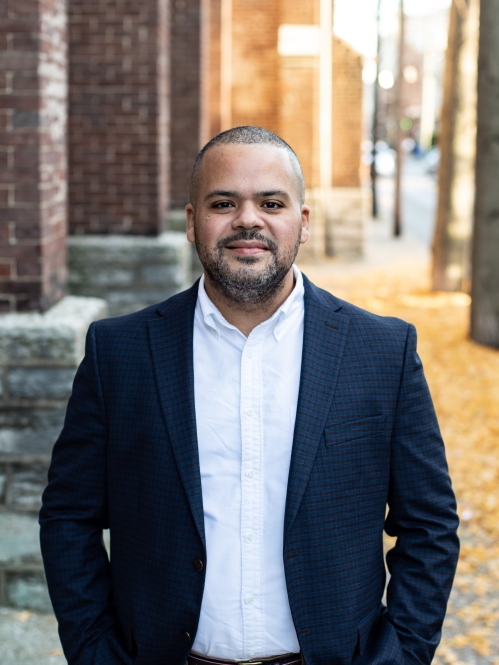Rafael E. Pérez-Figueroa, MD, MPH (he/him/his/el)

Biography
Rafael E. Pérez-Figueroa, M.D., M.P.H., is an associate professor in the Department of Urban-Global Public Health at the Rutgers School of Public Health. He is also the Associate Dean for Community Engagement, Population Health, and Global Public Health. He is a fellow of the Robert Wood Johnson Foundation Interdisciplinary Research Leaders Program, the Columbia University Community-Based Participatory Research Program, the National Hispanic Science Network on Drug Abuse, and the New York University Postdoctoral and Transition Program for Academic Diversity.
Research Interests
Most of his scholarly work focuses on public health issues related to human immunodeficiency virus/acquired immunodeficiency syndrome (HIV/AIDS) prevention and care, substance use and abuse, harm reduction, mental health, and healthcare utilization. He uses different community-engaged approaches to study these issues, focusing on the interplay between behavioral, social, structural, and environmental factors that influence health systems in which inequities are embedded. He emphasizes conducting community-engaged research work and public health practice that directly aligns to the translation, diffusion, and implementation of evidence-based health strategies into community practice and policies. Dr. Pérez-Figueroa is examining the role of fatherhood on the health outcomes of men of color exposed to the criminal justice system as part of a community-academic partnership. This study, funded by the Robert Wood Johnson Foundation, aims to change policies, procedures, and practices that disproportionately impact men of color in the commonwealth of Kentucky and promote a culture of health nationally. In addition, he has studied the implementation of state-wide approaches to address inequities in mental health outcomes and the provision of mental health services to youth and families; evaluated and sharpen the implementation of different technology-based strategies to engage sexual and gender minority youths of color into HIV prevention and sexual health services; examined the disproportionate access to healthcare services of people of color who use drugs; and evaluated the burden of sexually transmitted infections among key under resourced populations globally. His work has been funded by the National Institute of Drug Abuse, the Substance Abuse and Mental Health Service Administration, and the National Center for Advancing Translational Sciences, among other national agencies and foundations.